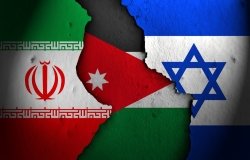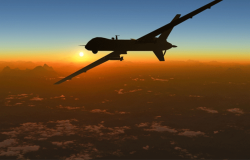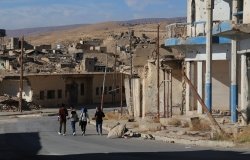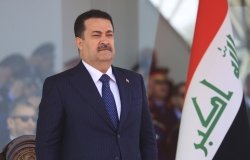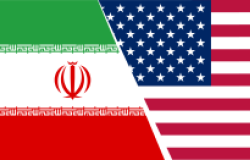Iran Under President Ahmadinejad
The June 26 meeting presented a reversal of the overarching conclusion of last year's conference that the election of President Ahmadinejad would not significantly affect Iran's path of reform. This underestimation was addressed with a discussion of the recent developments and trends in Iran. The first panel featured a discussion of the national political and socio-economic situation as well as a presentation on the power of the local democratic establishment in Iran. Speakers addressed the real versus perceived command capacity of President Ahmadinejad, the fruition or failure of his socio-economic policies, and the seeming reversal of local democratic reform under his administration. The second panel focused on Iran's foreign policy drivers, options, and goals. Speakers touched on Iran's historical and strategic ambitions in the Caspian region as well as its relations with Europe and the United States. They discussed Iran's attempt to secure itself economically and the strategic determinants steering the country's actions and overtures.
This event was cosponsored with the National Defense University's Institute for National Strategic Studies.
Panel I: Iran's Domestic Policy
Chair: Haleh Esfandiari, Director, Middle East Program, Woodrow Wilson Center
Hadi Semati, Public Policy Scholar, Woodrow Wilson Center; Professor of Political Science, Faculty of Law and Political Science, Tehran University, Iran
Kian Tajbakhsh , Member, Steering Committee, Urban Studies Research Group, Cultural Research Bureau, Tehran, Iran; International Consultant and Project Director of the Municipal Sector Review, World Bank
Bijan Khajehpour, Atieh Bahar Consulting, Tehran, Iran
Panel II: Iran's Foreign Policy
Chair: Judith Yaphe, Distinguished Research Professor, Institute for National Strategic Studies, National Defense University
Abbas Maleki, Chairman, International Institute for Caspian Studies, Iran; Senior Research Fellow, Belfer Center for Science and International Affairs, Harvard University
Gerd Nonneman, Professor of International Affairs and Middle East Policy, Lancaster University, United Kingdom
Barbara Slavin, Senior Diplomatic Reporter, USA Today; Public Policy Scholar, Woodrow Wilson Center
The June 26 meeting presented a reversal of the overarching conclusion of last year's conference that the election of President Ahmadinejad would not significantly affect Iran's path of reform. This underestimation was addressed with a discussion of the recent developments and trends in Iran. The first panel featured a discussion of the national political and socio-economic situation as well as a presentation on the power of the local democratic establishment in Iran. Speakers addressed the real versus perceived command capacity of President Ahmadinejad, the fruition or failure of his socio-economic policies, and the seeming reversal of local democratic reform under his administration. The second panel focused on Iran's foreign policy drivers, options, and goals. Speakers touched on Iran's historical and strategic ambitions in the Caspian region as well as its relations with Europe and the United States. They discussed Iran's attempt to secure itself economically and the strategic determinants steering the country's actions and overtures.
Related Program

Middle East Program
The Wilson Center’s Middle East Program serves as a crucial resource for the policymaking community and beyond, providing analyses and research that helps inform US foreign policymaking, stimulates public debate, and expands knowledge about issues in the wider Middle East and North Africa (MENA) region. Read more



